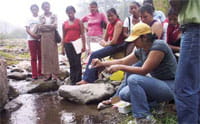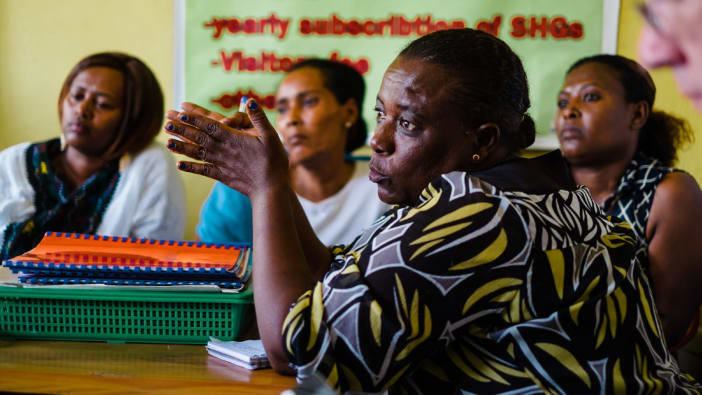Accountability of Water Councils
The Council members are elected democratically by the users of the water service. They hold their posts for four years and can be re-elected. On the other hand, their place on the Council can be cancelled at any time if the member fails to carry out their role effectively. The Councils are made up of leaders who are committed to their communities, such as pastors, local leaders, members of community associations and leaders of other organised groups. The fact that the churches are involved gives the Councils greater credibility among the users because the churches are usually respected for being accountable for their activities.
There are written rules and regulations for the Councils which are approved by the community and the municipal government. These authorise the Councils to establish tariffs, to set up connections and suspend them when required, to request expansions to the systems, and to promote the appropriate use of water resources, among other things. The Councils have access to legal advice if they ever need it so they can ensure they fulfil their responsibility to provide a functioning water system.
The Council members are trained by technicians from SANAA or by technicians provided by local organisations. The training includes tariff regulation, the management and maintenance of rural water supplies and the running of Councils. They are also trained in how to carry out a social audit to ensure good and transparent management of resources. Each Council has a book to record meetings as well as a book of daily accounts for recording income and expenditure. An internal audit is carried out regularly.
PAG’s involvement
For many years, the organisation Global Village Project (Proyecto Aldea Global – PAG) has designed and implemented water-related projects in the Department of Comayagua. It has supported the Councils to enable them to be accountable to the water users and SANAA. It has also empowered the community. For example, PAG has provided intensive training to the church leaders and to the Councils. This training was based on training needs identified by the participants. PAG ensured that both men and women took part in the training.
PAG’s work has helped communities to organise themselves and ensure the following:
- Efficient provision of drinking water supplies.
- Mechanisms to protect water as a resource and to conserve water.
- Access for the whole community.
- Quality of water.
- Fair tariffs that ensure access to water for everyone and a sustainable supply system.
The training and support that members of the Councils have received has enabled them to be more transparent, and water users find it easier to hold them accountable. Water users can rely on regulations and tariffs that ensure transparency in the use of funds and have a water supply system that is functional, sustainable and accessible to everyone.
José Vidal Lanza is Project Co-ordinator for PAG.
Email: [email protected]
Website: www.paghonduras.org









